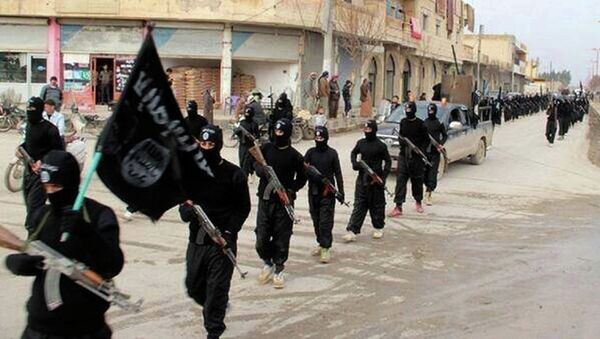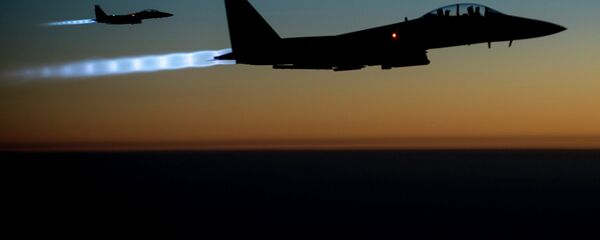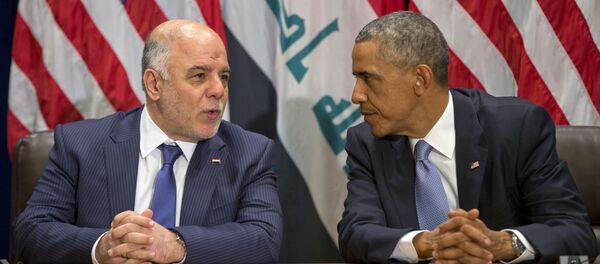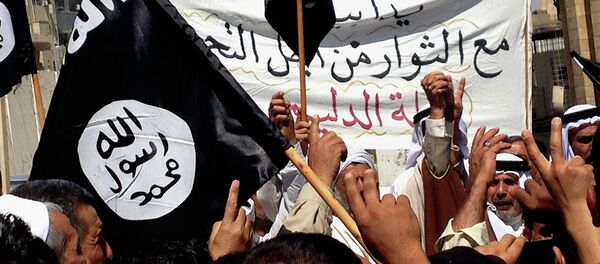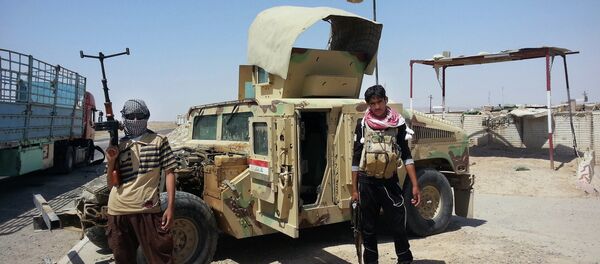Last year, the US Congress approved a $1.6 billion Iraq Train and Equip Fund (ITEF), part of President Barack Obama’s plan to help train Iraqi troops on the ground to fight the advance of IS militants.
The US deployment of weapons and equipment is part of a broader strategy to assist in the fight against the Islamic State, which includes coalition air strikes, surveillance and training.The Fund details plans to transfer US equipment ranging from body armor to assault rifles to a variety of local Iraqi forces. According to US officials, the program will also test the Shi’ite Iraqi government’s ability to arm Sunni tribes in the region, a move Obama maintains will foster reconciliation among the different ethnic groups in the country.
According to Pentagon officials, deployment of the long-awaited equipment began two weeks ago and is moving as fast as possible to forces of the Iraqi government, Kurdish Peshmerga, and other Sunni groups.
"This is the first of several planned unit equipment issues for the coming weeks, which will include Peshmerga units," Pentagon spokeswoman Commander Elissa Smith said to reporters.
The first issue of material under the ITEF provided the Iraqi army brigades with rifles, machine guns, grenade launchers, mortars, and protective masks, among other things. It was deployed the week of May 18 — the same week Iraqi forces lost the strategic city of Ramadi to IS.
The loss of Ramadi marked one of the biggest defeats for the Iraqi military, and prompted Iraqi Prime Minister Haider al-Abadi to voice his frustrations with the pace of weapons delivery to local forces.
After a talk in Paris on Tuesday in which the prime minister outlined plans to retake lost territories, he criticized the international coalition and the US for not doing enough in the way of providing assistance to Iraq.
"The air campaign is useful to us, but it isn’t sufficiently intensive," al-Abadi told French paper Le Monde. "We don’t want ground forces. Even if we asked the United States for them, we wouldn’t get any. We need more intelligence assistance."
"We’ve gotten practically no weapons or munitions from the coalition," he added. "There are a lot of discussions on support, but almost nothing in practice."
For their part, US officials have maintained that the slow delivery of weapons is not a problem, with some saying al-Abadi’s concerns stem from mounting domestic pressure against him in the wake of Ramadi’s fall.
"They’re complaining the program is too slow," Douglas Ollivant, former Iraq advisor to the Bush II and Obama administrations, told Reuters. "But the fact is, it’s a slow system."
"A lack of weapons and ammunition is not the central problem," another US official, speaking on condition of anonymity, said. Instead, he argued, "vulnerabilities in organization of leadership" are what pose a serious risk to local fighters.
The Pentagon has additionally cited coalition deliveries of hundreds of ammunition rounds and vehicles to local forces that began last year, most of which were provided under donations and foreign military sales.
Securing these weapons has become the subject of serious concern, as IS militants have repeatedly captured and used US-provided arms. On Tuesday, al-Abadi announced that 2,300 armored US Humvees, among other arms, were captured by IS militants during the fall of Mosul last summer, raising concerns over the risks associated with securing the equipment.
US officials, however, have downplayed these risks, saying it wasn’t unusual for newly transferred weapons to end up in the wrong hands.

